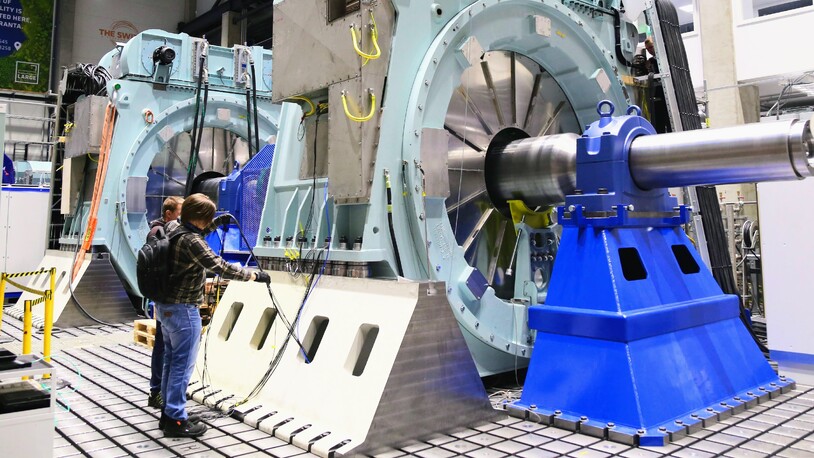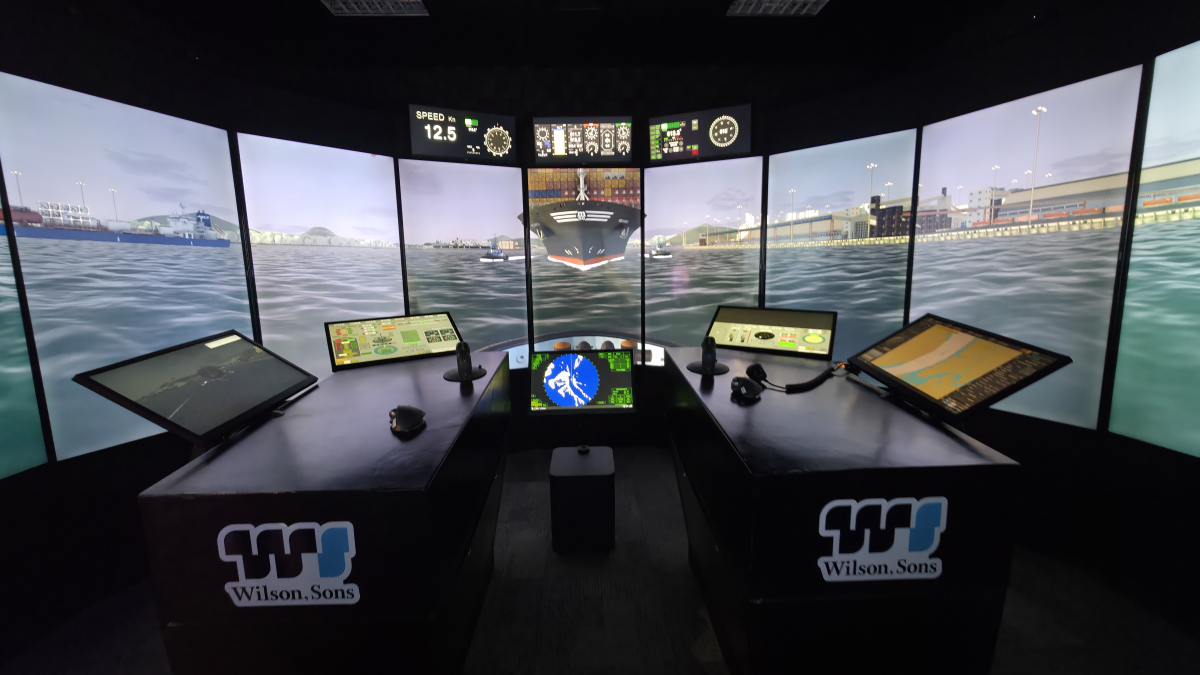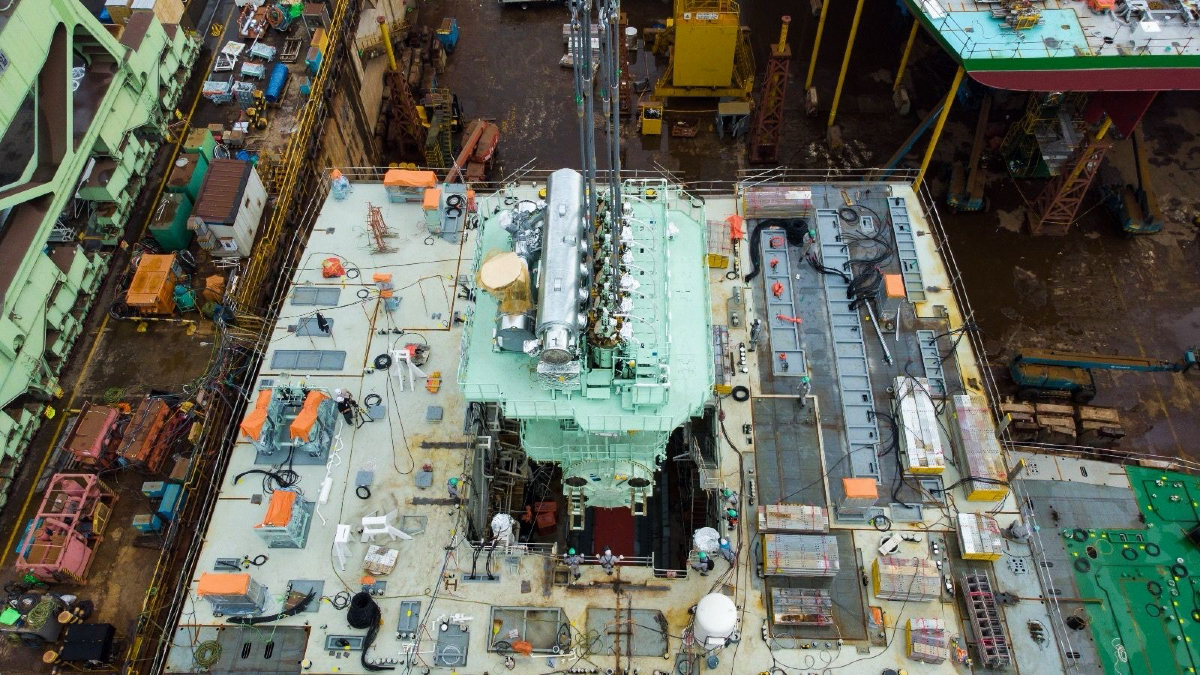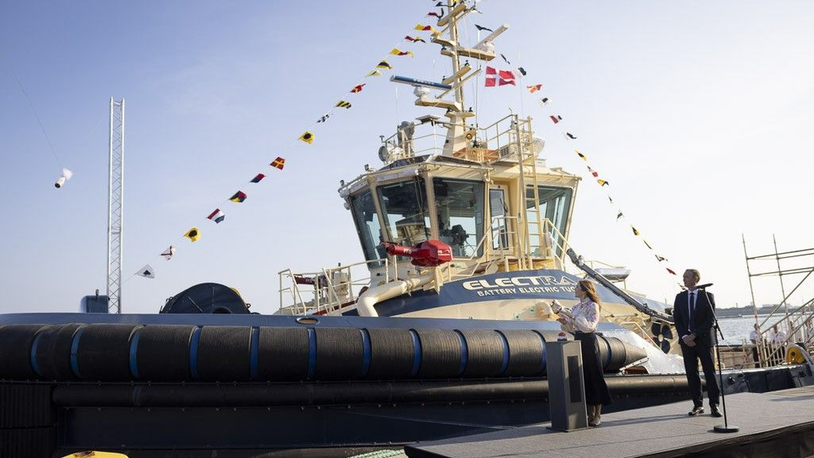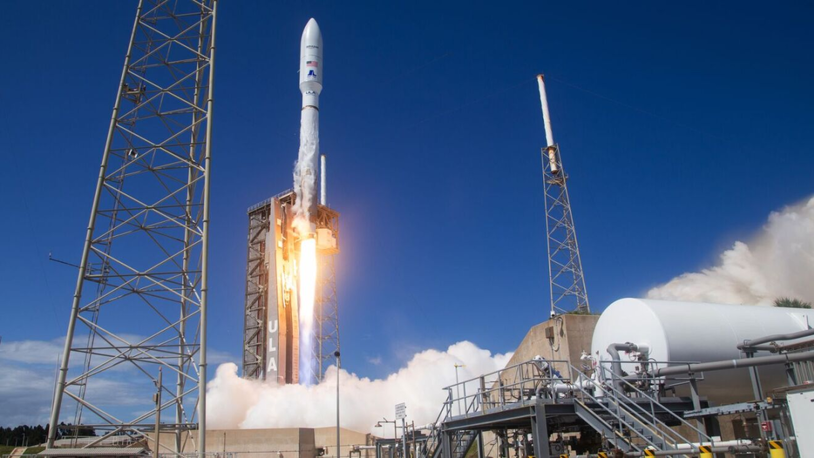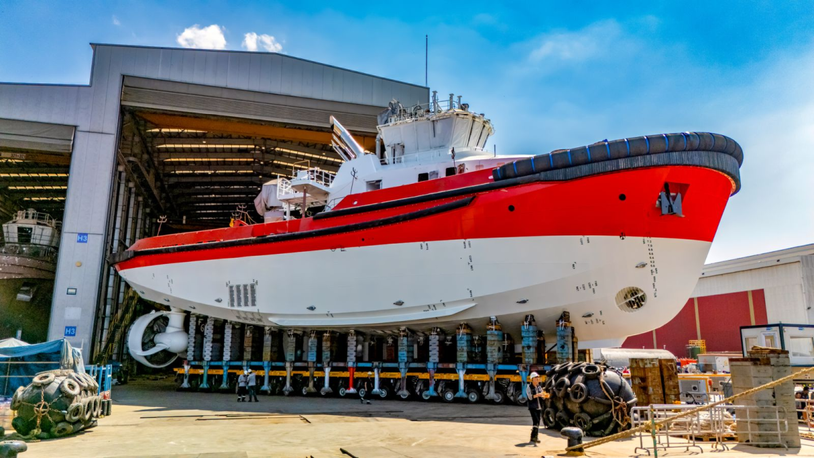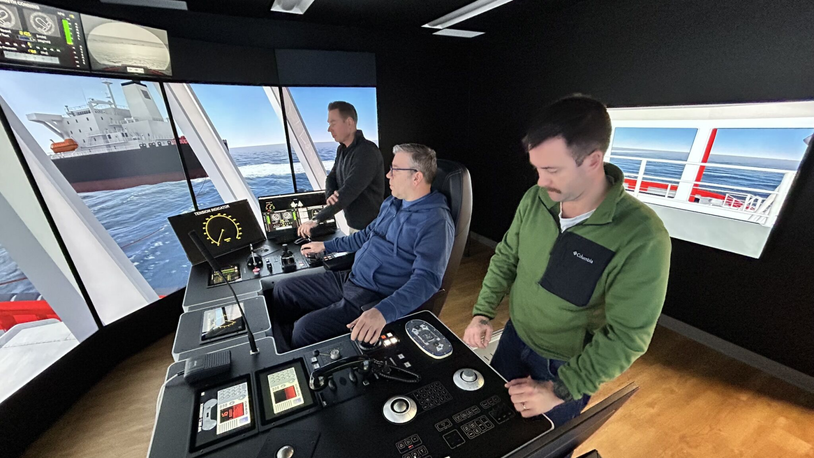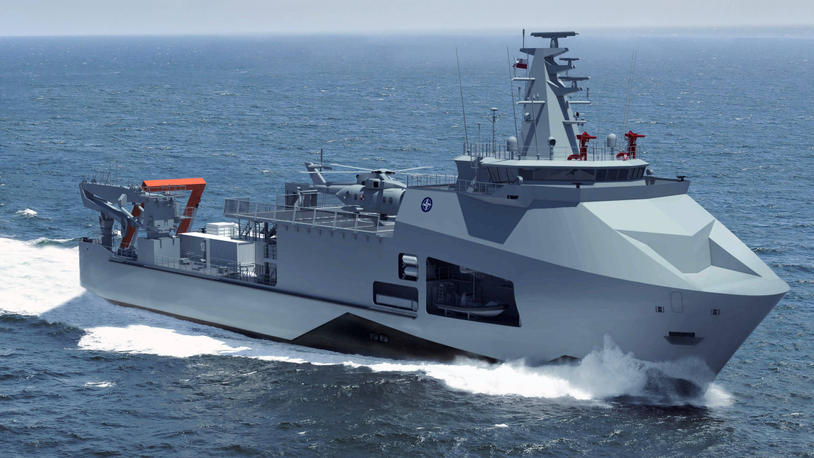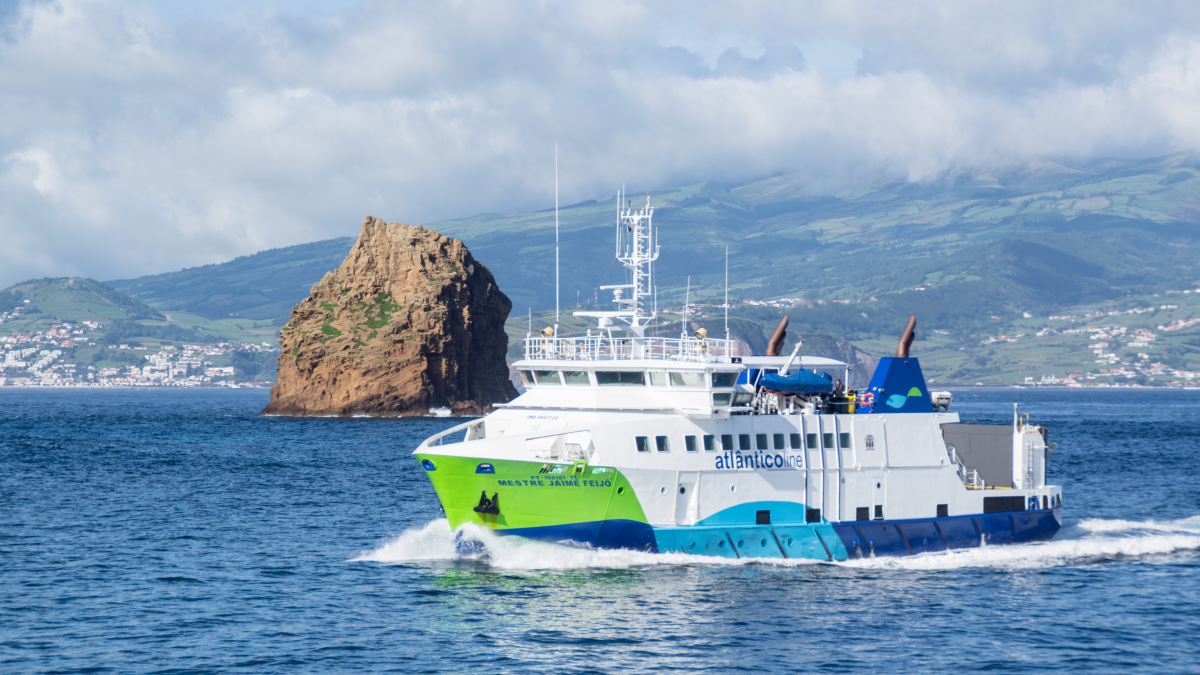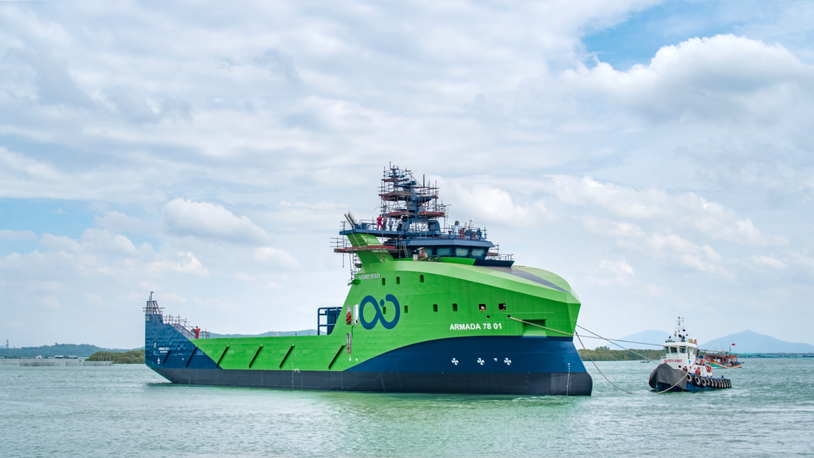Business Sectors
Events
Floating energy: successfully unlocking stranded gas using FLNGs and FSRUs
Contents
Register to read more articles.
Wilson Sons opens new training simulator
A major Brazilian owner has invested in tugboat simulation facilities, ship tracking and new analysis software to raise safety and lower fuel consumption and emissions
Wilson Sons has opened its new training centre in Brazil with suites of simulators for training tugboat masters in safer and more efficient manoeuvres, while its digital technology monitors operations and helps the company reduce emissions.
This Brazilian owner of around 80 tugs, with more than 187 years of experience, opened a new training facility within its Towage Operations Centre (COR) at Edifício Palazzo in Santos, Sao Paulo state, on 25 September 2025.
This is equipment for simulating tug operations including transits and ship towage, handling and docking in ports, with programs covering over 25 Brazilian terminals and harbours where Wilson Sons vessels operate.
These simulators will be used for training captains and maritime workers on safety procedures and technology used on tugs in its fleet and for the analysis of towage practices and challenges.
Facilities combine hardware found on Wilson Sons’ tugs for propulsion control and manoeuvring, radiocommunications and winch operations, with monitors for displaying radar and electronic navigational charts (ENCs) and large screens for computer-based accurate visualisation of harbours and ships. Software simulates motions and interactions between tugs and ships assisting masters to understand propulsion controls and results on vessel towage and handling.
Wilson Sons says there are features in these simulators enabling masters to practise and analyse different towage and ship-manoeuvring scenarios in different environments, weather and sea conditions, to help them overcome challenges faced in Brazilian ports
These simulators will also enable Wilson Sons and port and terminal owners to analyse and improve manoeuvres of large ships, up to 370 m, in harbours. This will help to reduce operating restrictions, as there are customised simulations for each Brazilian port.
“The technology behind the new manoeuvre simulator supports our innovation strategy,” said Wilson Sons director of towage operations Rodrigo Bastos. “It is a tool that increases the safety and efficiency of our operations, supporting the growth of the Brazilian port industry and the competitiveness of the global logistics chain.”
Training includes teaching masters to reduce speeds during transits between towage jobs, or quaysides to ships, lowering fuel consumption and emissions.
Wilson Sons’ COR has been used since 2011 for real-time monitoring of the company’s tugboat fleet. It uses automatic identification system (AIS) information from a network of antennas distributed along the Brazilian coast and signals emitted by tugboats and ships.
COR allocates tugboats to handle vessels by continuously tracking the fleet and ships sailing into and out of Brazilian waters.
“Continual tracking ensures maximum efficiency of our assets and adds an important layer of safety to the manoeuvres,” said Wilson Sons fleet and operations manager Pedro Lima. “By allocating the most suitable tugboat to meet client demands, at the right time and at the right speed, operations become more sustainable and with lower emissions.”
In 2023, Wilson Sons introduced Artemis as a new analysis system at COR, in collaboration with the startup Argonautica, to integrate AIS information with external data sources, including meteorological and oceanographic data, such as tides, currents and wind in harbours. This information can be viewed from any location using mobile electronic devices in ports and on vessels.
“Continual tracking ensures maximum efficiency of our assets and adds an important layer of safety to the manoeuvres”
COR develops operating strategies that increase operational safety and reduce fuel consumption and emissions. This information has been used, since April 2024, to train tug masters on improving operational safety under the Safe WS-Standard Manoeuvre project.
In this training, topics covered include: navigation using electronic devices, such as the use of radar, ENCs and GPS; actual cases of manoeuvres; prevention of unsafe conditions: and avoiding incidents and accidents.
During training, seafarers complete simulated emergency drills on wire rope breakage, extreme sea and wind conditions and navigating in low visibility. Wilson Sons provides ongoing training for professional development, enabling crew members to study to become captains. This training includes decision-making, use of navigation equipment, maritime and port legislation, documentation, levels of responsibility, and IMO international collision prevention regulations.
All this comes together to improve safety and reduce incidents across the fleet. In its Q2 2025 income statement, Wilson Sons reported its rate of lost-time accidents was 0.47 incidents per million hours of work in the 12 months ended 30 June, which is lower than the global benchmark of 0.50.
The 28th International Tug & Salvage Convention, Exhibition & Awards will be held in Gothenburg, Sweden, in association with Caterpillar, 19-21 May 2026. Use this link for more details of this industry event and the associated social and networking opportunities
Related to this Story
Events
Maritime Regulations Webinar Week
Floating energy: successfully unlocking stranded gas using FLNGs and FSRUs
© 2024 Riviera Maritime Media Ltd.

